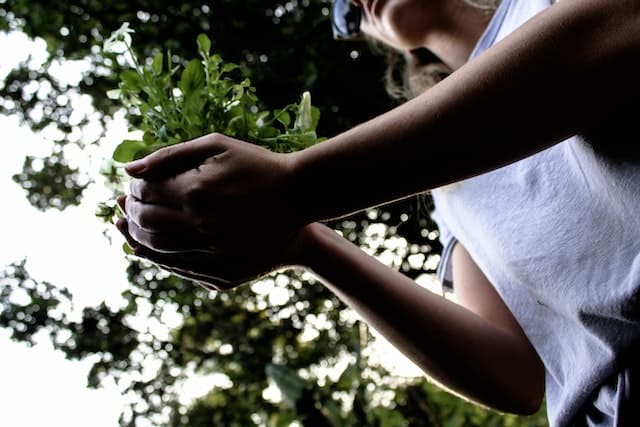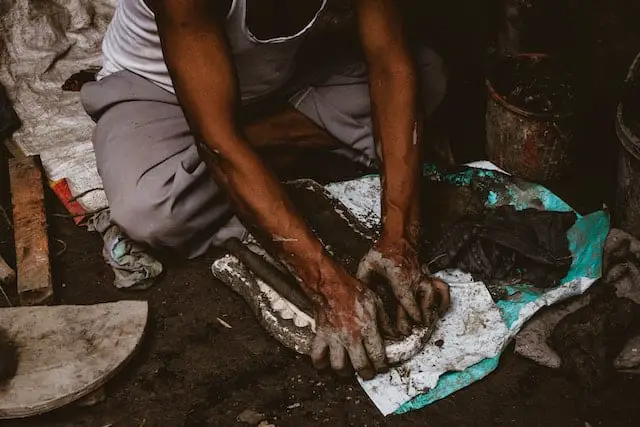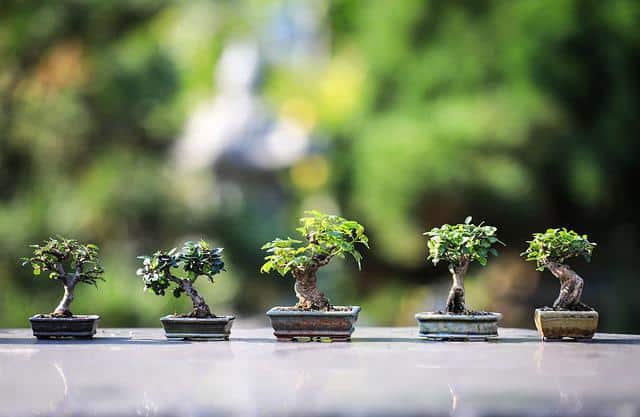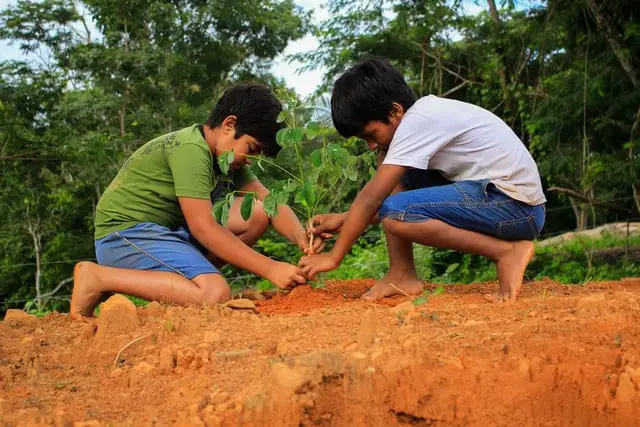The possibility and effectiveness of planting fruit trees in clay soil have recently emerged as a vexing subject. Well, fruit trees can grow and thrive in clay soil, but you must pay attention to the plant’s care and other factors.
Many gardeners dream of having a backyard orchard with healthy fruit trees that produce a good harvest each year. However, you may not realize that dream if you have clay soil since fruit trees prefer lighter, drier soils.
Getting fruit trees to grow in less-than-ideal soil conditions can be challenging when you are in the process of growing them. You may encounter some challenges when planting fruit trees in clay soil. With a little bit of care, you can help your fruit trees produce many delicious fruits, even in heavy soil.
In the end, clay isn’t the best medium to grow so many plants and trees. Are your fruit trees able to thrive in clay soil? Is planting fruit trees in clay soil okay?
Planting Fruit Trees In Clay Soil

You can develop a healthy backyard orchard with a suitable tree cultivar and some soil and site preparation, but it is not as simple as digging a hole and planting the tree.
Clay soil is usually conducive to fruit tree growth. Apples, pears, cherries, peaches, and nectarines can thrive best in clay soil, as they are stone or pome fruits. For good root growth, they require at least three feet of topsoil.
Deep soil is essential for developing and supporting the roots of fruit trees. The best soil for fruit trees is well-drained, especially with sandy or loamy textures, so if your soil is not compatible with these textures, you may need to amend it. To grow plums and apples, the ground has to be free-draining.
Apples can survive on clay soil on MM 106. Rich, well-drained soil with some sand and loam is best for fruit trees. Deep, rich soil helps fruit trees grow deep roots. Soils rich in clay are ideal for this. While clay soils can be challenging to work with, they can produce brilliant results in the garden once you get the hang of them.
What Does Clay Soil Look Like in Your Garden?
If you walk on clay soil, you’ll notice that large chunks of it stick to your shoes or garden tools. Looking at it, walking through it, and picking up a handful of the soil are the easiest ways to check its type. Clay soil easily forms a ball when squeezed but does not fall apart. Wet clay becomes muddy quickly and dries out cracking.
Additionally, you can send soil samples to any agricultural centers or extension offices for a detailed analysis.
The Following Are Some Essential Facts About Clay Soil:

To grow fruit trees in clay soil, you should keep a few things in mind.
- When the clay is wet, avoid walking on it. Stay away from wet clay soil.
- Put some wooden boards on the clay so that you can walk over it.
- Planting or digging in wet clay soil is not recommended.
- The autumn season is an excellent time for planting anything in clay soil.
- Over the winter, try keeping the soil surface in the edges so the ice can break up clay soil clumps if any occur.
- If you want to plant woody plants on a slight mound or hill, feel free to do so. You can keep the roots away from wet soil this way.
- Let’s talk about the clay soil’s physical properties, which might be more important for further understanding.
Clay soil trees that grow well
Here are some of the best ones:
- Apricot
- Butternut
- Falsa
- Hackberry
- Hawthorn
- Mulberry
- Pear
- Plums
- Pomegranate
- Sapodilla
- Stone fruit tree
- Walnut
- Yellow Mombin
Some of those trees won’t grow in Utah. This is fine. Only certain trees will bear fruit in specific years. According to my research and literature reviews of agricultural extension and research papers, these plants should be delicate in clay soil.
Providing Clay Soil with the Best Growth Conditions for Fruit Trees

By amending your clay soil regularly, you can improve its structure and health as a whole. Additionally, improving the soil can make it much easier to work it the next time you plant.
You need time and patience to amend your soil, but the results are well worth the effort. Clay soils can be frustrating, so what can you do to make them better for your backyard fruit garden?
There is no need to search for a way to achieve this because here’s a guide. These tips can be mixed and matched – or even combined like you did when planting your trees.
Learn more in a related post: Why Are My Avocado Tree Leaves Drooping
Summary
Now, you have the answer to planting fruit trees in clay soil! There are a lot of trees we have planted in clay, mainly because our home is pure clay. What about digging the holes and amending the soil? Neither wind nor soil issues have caused many trees to die.
The canyon wind storms we get here are likely to cause you to lose a few trees over time. You are working to amend and improve the soil throughout our entire yard. Nevertheless, this will be a decades-long process to enhance half-acre as the whole.
Frequently Asked Questions
Is clay soil suitable for growing fruit trees?
Clay soil can only support a few fruit trees unless amended to improve drainage and nutrition. Fruit trees can be grown in clay soil that has been amended and enhanced with other soil types, mulches, compost, and other organic materials.
Is Clay Conducive To Fruit Tree Growth?
Due to their shallow root systems, stone fruit trees such as apricots and plums thrive in clay soils. These trees should be planted in the same manner as other trees. Since apricot trees grow quite large, it is recommended to plant them about 25 feet apart from other trees.
What Are The Pros And Cons Of Planting Apple Trees In Clay Soil?
You can grow apple trees if your soil is clay loam. It is essential that the soil has good drainage, and the pH level should be around 5.5 to 7.5. Apple trees rarely produce fruit on their own.

Hey, I’m Lisa and I’ve been an avid gardener for over 30 years. I love writing, talking and living in the garden! Feel free to connect with me on my socials below

